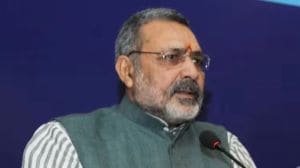Francophone meet, a strategy to checkmate English
HANOI, November 16: With the close of the Francophone summit here on Sunday after three days of fanfare, other countries still question the...

HANOI, November 16: With the close of the Francophone summit here on Sunday after three days of fanfare, other countries still question the relevance of `La Francophonie’ for the rest of the world.
Seen variously as a bulwark against the relentless spread of English, a tool for France to enhance its diplomatic clout and a channel by impoverished ex-colonies to increase aid handouts from wealthier Francophone members, to outsiders, the role of the Francophone movement remains elusive. Even with the appointment on Sunday of former UN chief Boutros Boutros-Ghali as the movement’s first Secretary General, the grouping still faces an identity problem.
“The countries involved have much more different goals than even the Commonwealth. As a grouping, it is hard to understand what their common goal is,” said one European diplomat on Sunday. At a press conference after the close of the summit, aimed at presenting a unified Front to the rest of the world, some Francophone members were divided on the key issue of the day. French President Jacques Chirac condemned as “unacceptable” the behaviour of Iraqi leaders in the arms inspection crisis and supported the UN embargo against Iraq, but Vietnamese Vice President Nguyen Thi Binh took the opposite side.
“We don’t think that an embargo can resolve the problem,” she said, adding that Vietnam had suffered a long time during a US-imposed embargo. Indeed, despite the “collective voice” of the movement, individually, its members remain divided on other issues. For example, in its summit declarations, members “expressed their pre-occupation with the consequences” of anti-personnel landmines. Yet during the summit, Vietnam told Canadian Prime Minister Jean Chretien it would not sign a treaty banning the use of mines next month in Ottawa. No wonder that to outsiders, the movement seems to be still struggling to define itself. It groups some 49 countries and regions “where the French language is spoken”, but if language is the mortar that holds the movement together, it is often spread extremely thin.
In Vietnam, less than one percent of the 76 million population speak French, a situation which the Francophone movement has addressed by committing millions of dollars to promote French in schools. For Hanoi, the summit has produced tangible benefits. Seen as Vietnam’s ultimate coming out party, the summit was hailed as a resounding success. “The Vietnamese showed they could organise a summit. They now have diplomatic relations with 165 countries compared with virtual isolation in 1986,” said the European diplomat. A Western diplomat saw the movement in another light. “Somewhere in all this is there is a faint anti-US sentiment,” he said. “I don’t think the Americans are doing well winning the hearts and minds of the new world and the French are aware of this.”



- 01
- 02
- 03
- 04
- 05




























